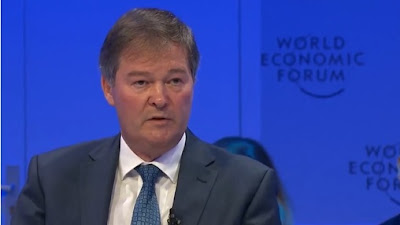OTPP's CEO Jo Taylor on Why They're Looking Hard at Private Equity
Collude, competeFund cycles
This is a very interesting interview with Jo Taylor opening up on private equity and what OTPP expects.
First and foremost, it expects returns and second and equally important, it expects co-investment opportunities to scale and significantly reduce fee drag (pay no fees on co-investments).
The article is a bit misleading and let me explain why.
There's a lot of talk about "bypassing PE funds" competing head on with them but this isn't easy or realistic.
There are basically three types of PE investments:
- Fund investments (pay traditional 2 & 20 fee to GPs)
- Co-investments (where you partner up with a GP on bigger transactions to lower fee drag and improve scale)
- Purely direct deals (where a pension directly sources deals on its own)
Now, in an ideal world, all pensions would do 100% purely direct deals but this isn't feasible or realistic.
This afternoon I had a drink with one of the best PE managers in the country and he told me flat out: "You can't compete with funds on carry, if your team is really good at sourcing and adding value on deals, you will have a problem retaining your top talent."
He's absolutely right which is why most of Canada's large pensions have decided to invest in funds and co-invest alongside them to scale and reduce fee drag.
He added: "This is a relationships business which is why you don't want high turnover in your PE team and you need to stick with a strategy that works and not change it every so often."
He agreed with Jo Taylor that the big funds are raising new funds much sooner (every 18 months) and that has impacted returns: "Nowadays, most of the large investors are happy making 10-12% net on their fund investments. Returns have come down and the environment for PE is getting tougher as rates rise and inflation persists."
He also agreed with Jo that you're a marginal player if you're invested 5% or 10% in some PE fund and "have no say in terms of pushing your organization's ESG terms."
He added: "Unless you have 30% to 60% of the fund or own the asset management firm outright, good luck pushing your ESG agenda."
Again he's absolutely right.
I asked him if his mature PE portfolio is 50% fund investments and 50% co-investments and he replied:
"We are almost there. Co-investments are typically 3-5 year investments and funds 18 to 24 months or less so with co-investments, you need a good team to be able to analyze them properly and also understand how to add value and make sure that GPs are marking assets properly. If you don't do it properly, you will end up co-investing in a bad deal with subpar returns."In other words, even with co-investments, you need a highly specialized staff able to analyze these deals quickly and properly and work with GPs to add value.
He also told me that the mid-market space still offers the most attractive returns and it's easier to push your ESG terms whereas in the mega funds, "you can write a billion ticket and still not be able to demand anything."
One thing we talked about was creating a platform company to retain top talent and he told me that may work but the economics have to make sense.
"If you look at the turnover in some of the PE departments at Canada's large funds, you'll see some places doing purely direct deals had a tough time retaining their best talent. It's only normal. Again, it's hard to compete with the carry GPs offer."
Jo Taylor knows all this. When we last spoke, he told me the war on talent is something which worries him a lot.
He also understands the PE business is a relationship business and you need to have the right relationships to gain access to good co-investments to maintain or increase your allocation to private equity and reduce fee drag.
Lastly, OTPP recently put out something on how digitization, decarbonization and disparity are shaping the future of investing. Take the time to read the report which is available here.
Below, Jo Taylor attended the World Economic Forum at Davos and sat on a panel discussion on "Investing Responsibly in Sustainable Governance." This is a great panel discussion and Jo's comments begin at minute 23.
Take the time to listen to this discussion, it's excellent and listen to his comments on good governance and how they work with the management of companies they invest in to relay their values and standards on governance, culture, ESG and diversity and inclusion.
Update: OTPP's President & CEO, Jo Taylor, shared this with me after reading this comment:
If I were to emphasize anything it would be to say that we still partner with many PE funds regularly around the world. As well as providing us with excellent returns to compliment those of our own Equities team, we find that in addition to securing co-invest opportunities we can learn from them (Teachers’ has always had a strong learning culture). This tends to be primarily in thematic sourcing, and navigation in countries or sub sectors less familiar to us.
On governance and other social/environmental issues, it is really about having a voice and influence - so that we can shape a better future for the business and its ecosystem. If you have a small equity holding that is really challenging to execute.
I thank Jo for sharing his thoughts with my readers.

Comments
Post a Comment